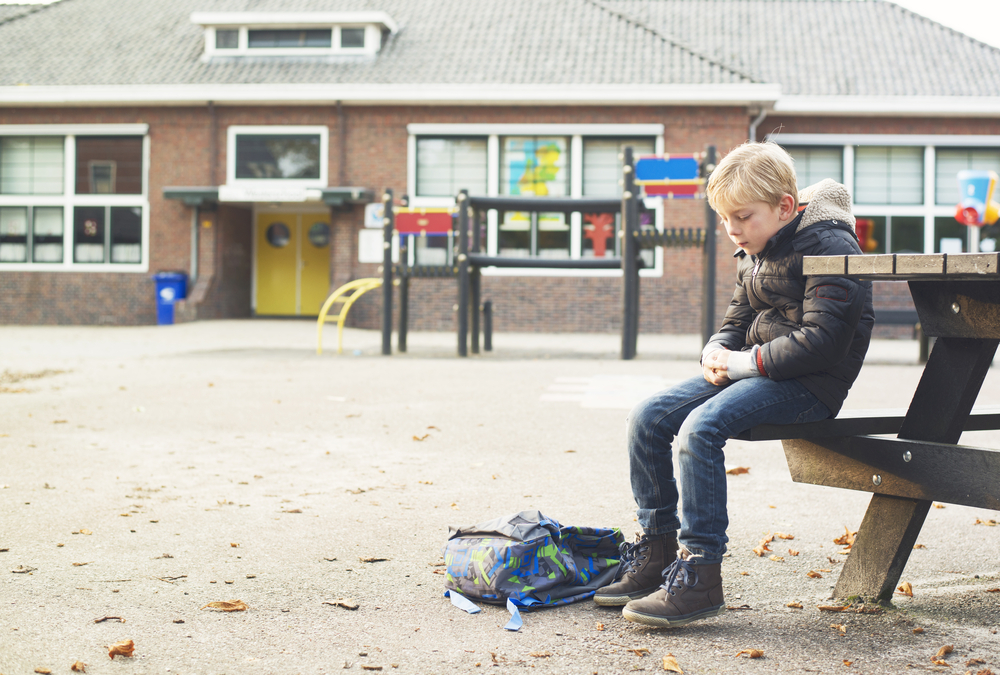
Education
What school is best for your child?

If students feel disconnected from school, their learning and even their health can suffer - new research shows how teachers can help
Published 19 December 2018
Most of us have memories of our days at school; usually some good and some not so good.
But the chances are the good memories arose when we felt cared for and valued by our peers and the adults who helped us learn.

These positive relationships are an important part of ‘school connectedness’ - the degree to which students perceive the people, places and activities they experience in a meaningful and important manner.
We are researching connectedness in primary and secondary schools to help find ways to build and strengthen this important plank in the education system. As part of this, we are investigating how connectedness links with factors like loneliness and school achievement.

Education
What school is best for your child?
School connectedness is an important protective factor for many students.
It influences regular school attendance, which is key to improved education and health outcomes. Connectedness also reduces risk-taking behaviour and violent and antisocial behaviour, as well as the likelihood of emotional problems.
But, in so many schools, the focus on the curriculum and educational outcomes like NAPLAN results, without a deep foundation of valued relationships and worthwhile routines and experiences, means that for some students school is a ‘desert’ experience to be avoided and devalued.
Our new research identifies key steps schools can take to help address this.
We recently published a systematic review of the research on connectedness in the Journal of Psychologists and Counsellors in Schools, which involved analysing 36 studies on the social, emotional, behavioural and cognitive aspects of learning conducted between 1990 and 2016.

We found that students need to attend school regularly to build relationships that enhance their sense of self and their relations with the people and groups around them. Then, they can actively engage in learning and this leads to ‘flow’.
Psychologist, Mihaly Csikszentmihalyi defines flow as “the state in which people are so involved in an activity that nothing else seems to matter; the experience is so enjoyable that people will do it even at great cost, for the sheer sake of doing it’”.

Education
What does a great teacher look like?
Simply put, the sequential, four factor model is that attending leads to belonging, which leads to engagement, which leads to flow.
Two of the factors in the new model are focused on building relationships - attending and belonging, and two are based on school performance - engaging and flow.
‘Attending’ is self-explanatory. For students to experience ‘belonging’, they will typically have positive experiences of school, feel their values align with the school’s, and have good relationships with their peers.
Once they become ‘engaged’, we see them becoming future and task focused, modelling positive behaviour to their peers, demonstrating good planning skills, being motivated and being free to learn without fears of not being a full member of the class or school.
At the final stage of the model, when students are in a state of ‘flow’, they are extending themselves beyond the familiar, experiencing intense immersion, involved in activities that are highly challenging and rewarding, and lead to transcendent levels of achievement.

The model provides a template for establishing a student’s current experience of school and understanding what actions teachers need to take to help them become more connected.

For most students attending school is not a major problem. From the earliest days of childcare, children adjust to consistent attendance.
However, some students are at risk of habitual absenteeism with some genuinely feeling alienated and disaffected.
To combat this, schools must be welcoming and ready to adjust to the needs of all students. For some schools, this means building a sense of belonging by going to students’ homes and picking them up or providing breakfast clubs or activities that foster routine attendance.
Common, positive experiences like these that are appreciated by students must be part of school daily life. Celebrating with events like school camps, excursions, sport days, and festivals especially where values are aligned, provides positive student experiences that builds cohesion in relationships.
Once students can work together, they can become engaged and immersed in a learning environment that is future and task focused, that identifies positive possible roles and role models, that assists them to learn to plan and remain motivated, and that prompts positive social engagement in and beyond the school.

Occasionally, there will also be positive, peak experiences where students will have immersive or transcendent moments - from a daily or weekly ‘buzz’ through to potentially life-changing flow.
Further research is needed to better understand the processes and practices that enhance connectedness in Australian schools and internationally.
This will lead to valuable insights and possible interventions to improve students’ attendance and connectedness and to turn the desert experience into an oasis.
Banner image: Shutterstock